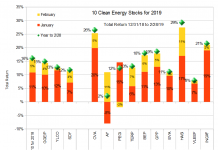A new report by Merril Lynch and the World Resources Institute (WRI), entitled “Alternatives for the clean car evolution��?, provides good background on regulatory and other forces driving the trend toward cleaner cars, as well as 3 ways to play this trend. The report first looks at air quality-related issues and lists 3 things to watch out for in the near term: (1) legal issues surrounding the classification of CO2 as a pollutant in the Clean Air Act, (2) whether governments, especially in Europe but eventually in the US, include road transport in their plans to fight climate change, and (3) California, as it often sets national trends on environmental regulation issues (see this post from the Cleantech Blog for some background on California’s newly adopted climate change legislation). The authors then discuss regulatory developments around biofuels/ethanol, customer demand trends, and finally take a superficial look at the exposure of the Big Three, Toyota, Honda and Nissan to clean powertrain technologies (i.e. fuel cells, biofuels/ethanol, diesel, hybrid). What’s their conclusion? The shift away from conventional automotive technologies to the ‘clean car’ will occur gradually, bearing more resemblance to an evolution than to a revolution. Three Stock Picks in Clean Car Evolution Merrill and the WRI conclude with three stock picks they believe are good plays on the “clean car evolution��?: 1) BorgWarner (NYSE:BWA) – the authors estimate that up to 70% of company sales are derived from technologies and applications that increase fuel efficiency and/or reduce emissions. 2) Valeo (EPA:FR) – the report calls Valeo “a direct play on fuel economy��? and notes that around 35% of revenues are generated from sales of fuel economy products. 3) Magna International (NYSE:MGA or TSE:MG.A/TSE:MG.B) – the company’s hydroforming business, the authors note, is a key technology in creating lighter and stronger cars, and Magna should thus see some upside from the push for greater fuel economy. This report contains some very good material for those who want to learn more about the factors driving one of the most critical set of changes to have impacted the auto industry in the past few decades. What I like about it is that it provides a fair and thorough assessment of the situation without giving in to the over-optimism that often plagues clean tech investing commentary. For more info on this report, you can contact the WRI. I would also suggest looking at this list of reports by the WRI’s Capital Markets Research team – they have put out some insightful pieces over the past few years.








